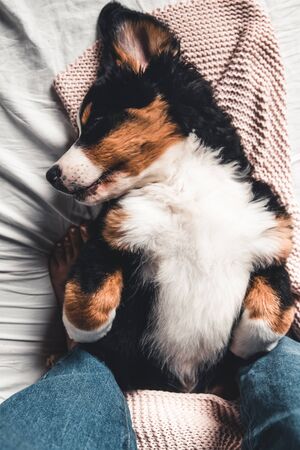1. Understanding the Causes of Pet Odor
Keeping your small pet smelling fresh starts with understanding what causes pet odors in the first place. Several factors contribute to unpleasant smells, including bedding choices, diet, and hygiene. By identifying these causes, you can take steps to minimize odors and create a fresher environment for both you and your pet.
Bedding Choices
The type of bedding you use plays a significant role in controlling odor. Some materials absorb moisture and odors better than others, while poor-quality bedding can trap smells and make them worse.
| Bedding Type | Odor Control Effectiveness | Notes |
|---|---|---|
| Paper-Based Bedding | High | Absorbs moisture well and controls odor effectively. |
| Aspen Shavings | Moderate | A natural option with decent odor control but requires frequent changes. |
| Cedar & Pine Shavings | Poor | Avoid using these as they can release strong scents that may be harmful to pets. |
| Fleece Liners | Moderate to High | Reusable and washable, but must be cleaned frequently to prevent odors. |
Diet and Digestion
Your pet’s diet directly affects their body odor and waste smell. Poor-quality food or an unbalanced diet can lead to stronger-smelling urine and feces.
- Avoid overly processed foods: Fresh vegetables, high-quality pellets, and hay help maintain digestive health.
- Adequate hydration: Ensure your pet has access to clean water at all times to aid digestion and reduce strong-smelling waste.
- Avoid excessive protein: Too much protein can lead to more pungent urine, especially in small rodents like hamsters and guinea pigs.
Your Pet’s Hygiene
Poor grooming habits can also contribute to odors. Some small pets groom themselves regularly, but others may need a little extra help from their owners.
Tips for Maintaining Your Pet’s Hygiene:
- Cage Cleaning: Clean your pet’s habitat at least once a week, with spot cleaning done daily.
- Bathing (If Necessary): Some pets like ferrets may need occasional baths, but most small pets should not be bathed too often as it can dry out their skin.
- Nail & Fur Care: Regular brushing helps remove dirt and loose fur that could trap odors.
By making informed choices about bedding, diet, and hygiene routines, you can significantly reduce unwanted pet odors and keep your furry friend smelling fresh!
2. Choosing the Right Bedding and Litter
Keeping your small pet’s habitat fresh starts with choosing the right bedding and litter. The right materials can help absorb moisture, control odors, and create a comfortable space for your furry friend.
Best Bedding Options for Odor Control
Not all bedding is created equal when it comes to odor control. Here are some of the best options:
| Bedding Type | Odor Control Level | Additional Benefits |
|---|---|---|
| Paper-Based Bedding | High | Soft, absorbent, and dust-free |
| Aspen Shavings | Moderate | Naturally absorbs odors, safe for small pets |
| Kiln-Dried Pine | Moderate | Aromatic, helps mask smells but must be kiln-dried to remove harmful oils |
| Coconut Fiber | High | Sustainable, excellent at absorbing moisture and odors |
| Pelleted Paper Bedding | Very High | Densely packed for superior absorption, low dust |
Litter Options for Extra Odor Control
If your pet uses a litter box, selecting the right type of litter is just as important. Here are some good choices:
- Pine Pellets: Highly absorbent and naturally deodorizing.
- Paper Pellet Litter: Made from recycled paper, great at trapping moisture and controlling smell.
- Corn-Based Litter: Biodegradable and controls ammonia odors well.
- Baking Soda-Infused Litter: Helps neutralize strong odors efficiently.
Bedding and Litter Tips for Maximum Freshness
- Avoid Cedar and Non-Kiln Dried Pine: These can release harmful aromatic oils that may affect your pet’s respiratory health.
- Cage Cleaning Routine: Replace soiled bedding regularly and deep clean the enclosure weekly.
- Add Baking Soda Sparingly: A light sprinkle under the bedding can help with extra odor absorption.
- Select Unscented Options: Artificial fragrances may irritate your pet’s respiratory system.
- Adequate Ventilation: Ensure proper airflow in your pet’s habitat to prevent odor buildup.
The Bottom Line on Bedding and Litter Choice
The right bedding and litter make a huge difference in keeping your small pet’s environment fresh. Opt for high-absorbency materials like paper-based or pelleted bedding, and choose an effective litter option if needed. Regular cleaning combined with the right products will keep odors under control while ensuring your pet stays comfortable.

3. Establishing a Regular Cleaning Routine
Keeping your small pet’s living space clean is essential for controlling odors and ensuring their health and happiness. A consistent cleaning routine helps prevent odor buildup and keeps your home smelling fresh. Below are some guidelines on how often to clean different parts of your pet’s habitat.
Daily Cleaning Tasks
Performing small daily tasks can make a big difference in keeping odors under control. Here are a few things you should do every day:
- Remove any uneaten fresh food to prevent spoilage.
- Spot-clean soiled bedding or litter areas.
- Wipe down water bottles and food dishes to prevent bacteria growth.
- Scoop out waste from litter boxes if your pet uses one.
Weekly Deep Cleaning
A more thorough cleaning should be done at least once a week. This helps remove lingering odors and keeps your pet’s environment sanitary.
- Replace all bedding or litter with fresh materials.
- Wash food bowls, water bottles, and toys with mild soap and warm water.
- Wipe down cage surfaces, including bars and platforms, with pet-safe cleaners.
- Check for hidden food scraps or waste that might cause bad smells.
Monthly Deep Sanitization
A full deep-cleaning session every month ensures that no bacteria or odor-causing buildup remains in your pet’s habitat.
- Completely empty the cage and scrub all surfaces with a safe disinfectant.
- If possible, let the cage air dry in the sun for extra sanitization.
- Replace any worn-out accessories or toys that may hold odors.
Cleaning Schedule Overview
| Task | Frequency |
|---|---|
| Scooping litter/waste | Daily |
| Bedding/litter change | Weekly |
| Cage wipe-down | Weekly |
| Toy and dish washing | Weekly |
| Cage deep cleaning | Monthly |
A regular cleaning schedule not only prevents bad smells but also keeps your small pet happy and healthy. By following these simple steps, you can ensure a fresh-smelling environment for both you and your furry friend!
4. Diet and Its Impact on Pet Odor
What your small pet eats plays a huge role in how they smell. Just like in humans, certain foods can cause stronger odors, while others help maintain a more neutral scent. Understanding how diet affects your pet’s natural smell can help you make adjustments to keep their habitat fresher.
How Diet Affects Pet Odor
Different foods break down in various ways inside your pet’s body, influencing the scent of their urine, feces, and even their fur. High-quality diets with natural ingredients tend to produce less odor compared to low-quality, processed foods that may contain artificial additives and fillers.
Foods That May Increase Odor
Certain foods can contribute to stronger-smelling waste or body odor. If you notice an increase in unpleasant smells after changing your pet’s diet, it might be due to one of these ingredients:
| Food Type | How It Affects Odor |
|---|---|
| High-protein diets (excess meat) | Can lead to strong-smelling urine and feces |
| Certain vegetables (broccoli, cabbage) | May cause gas and stronger odors |
| Processed or artificial ingredients | Often harder to digest, leading to foul-smelling waste |
| Dairy products | Can cause digestive issues and smelly stools in some pets |
Best Foods for Reducing Odor
If you want to minimize pet odor through diet, consider feeding them high-quality food with easily digestible ingredients. Here are some good options:
- Fiber-rich foods: Helps promote healthy digestion and reduce smelly waste.
- Fresh fruits and vegetables: Natural sources of vitamins that improve overall health without causing strong odors.
- Limited protein intake: Too much protein can lead to strong-smelling urine, so balance is key.
- Avoid artificial additives: Stick to natural diets free from unnecessary fillers or preservatives.
Adjusting Your Pet’s Diet for Minimal Odor
If youre struggling with persistent pet odors, try gradually adjusting their diet. Introduce new foods slowly and monitor changes in their scent. Providing fresh water at all times also helps flush out toxins and keeps their body functioning properly. If odor problems persist despite dietary changes, consult a veterinarian to rule out any underlying health concerns.
A well-balanced diet not only keeps your pet healthy but also makes them more enjoyable to have around by reducing unwanted smells. Making smart food choices can go a long way in keeping your small pet fresh and odor-free!
5. Grooming and Hygiene Tips
Keeping your small pet clean is essential for odor control. Regular grooming helps remove dirt, excess oils, and any lingering smells. Below are some effective grooming techniques to keep your furry friend smelling fresh.
Bathing Your Small Pet
Not all small pets need frequent baths, but when they do, its important to use the right approach. Overbathing can strip natural oils, leading to dry skin and discomfort. Here’s a general guideline:
| Pet Type | Bathing Frequency | Special Considerations |
|---|---|---|
| Rabbits | Avoid unless necessary | Spot clean with a damp cloth; full baths can cause stress. |
| Guinea Pigs | A few times per year | Use lukewarm water and mild pet shampoo. |
| Hamsters | No water baths needed | Provide a sand bath for self-cleaning. |
| Ferrets | Once a month or as needed | Bathe too often and their natural oils may be stripped. |
The Importance of Brushing
Brushing your small pet regularly helps remove loose fur, dirt, and dander that contribute to odors. It also prevents matting in long-haired breeds.
Selecting the Right Brush
- Slicker Brush: Great for rabbits and long-haired guinea pigs.
- Bristle Brush: Suitable for short-haired pets like hamsters.
- Mittens or Gloves: Effective for gently removing loose hair from ferrets.
Cage and Bedding Hygiene
No matter how well you groom your pet, a dirty cage will still cause odors. Make sure to:
- Cleansing Routine: Spot clean daily and perform deep cleaning weekly.
- Bedding Replacement: Change bedding regularly to prevent buildup of urine and waste odors.
- Avoid Strong Chemicals: Use pet-safe disinfectants when cleaning cages.
Paw and Nail Care
Your pet’s paws can trap dirt and odors. Wipe them gently with a damp cloth if needed. Keeping nails trimmed also helps prevent excessive scratching that could lead to trapped debris.
A consistent grooming routine will keep your small pet smelling fresh while promoting overall health and well-being!
6. Using Odor-Control Products Safely
Keeping your small pets living area fresh doesnt mean you have to rely on harsh chemicals. There are plenty of pet-safe deodorizers, sprays, and air purifiers that can help eliminate odors without putting your furry friend at risk. Here’s what you need to know about using these products safely.
Choosing Pet-Safe Deodorizers
Not all deodorizers are safe for small pets. Some contain strong artificial fragrances or chemicals that can be harmful if inhaled or ingested. Look for natural, non-toxic options designed specifically for pets.
| Product Type | Safe Options | Avoid |
|---|---|---|
| Deodorizing Sprays | Water-based, fragrance-free, enzymatic formulas | Sprays with strong artificial scents or alcohol |
| Absorbent Powders | Baking soda-based or activated charcoal | Talc-based powders or chemical-laden formulas |
| Air Fresheners | Essential oil-free, pet-safe air fresheners | Aerosol sprays or plug-ins with strong perfumes |
| Litter Deodorizers | Unscented, natural odor-neutralizing granules | Scented crystals or powders with synthetic fragrances |
Using Air Purifiers for Odor Control
An air purifier can be a great way to keep your home smelling fresh while also improving air quality. When choosing one for a pet-friendly home, consider the following:
- HEPA Filters: These effectively trap pet dander and airborne particles.
- Activated Carbon Filters: Helps absorb odors without releasing harmful chemicals.
- Avoid Ozone Generators: Ozone can be dangerous for small pets and should not be used in enclosed spaces.
How to Use Odor-Control Products Safely
Even pet-safe products should be used with caution. Follow these tips to ensure your small pet stays safe:
- Read Labels Carefully: Always check for ingredients that could be harmful to pets.
- Avoid Direct Contact: Never spray deodorizing products directly on your pet or their bedding.
- Use in Well-Ventilated Areas: Ensure there is proper airflow when using sprays or air fresheners.
- Monitor Your Pet: If your pet shows signs of irritation (sneezing, watery eyes, or unusual behavior), discontinue use immediately.
- Clean Regularly: Odor control products should supplement—not replace—regular cleaning and maintenance of your pet’s habitat.
By choosing the right products and using them responsibly, you can keep your home smelling fresh while ensuring a safe environment for your small pet.


